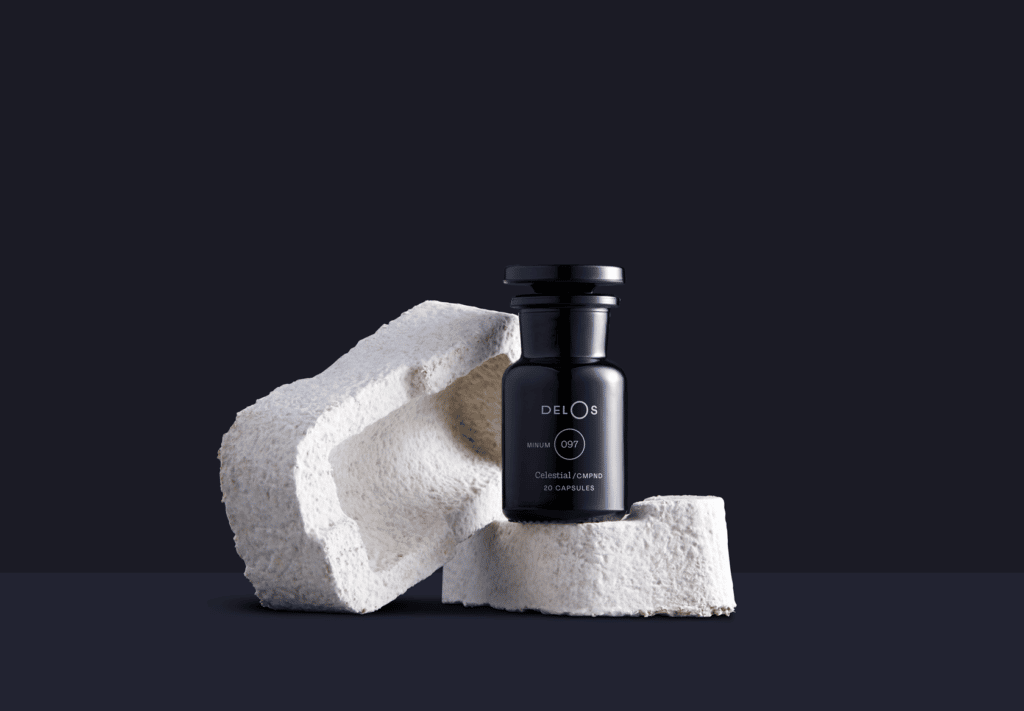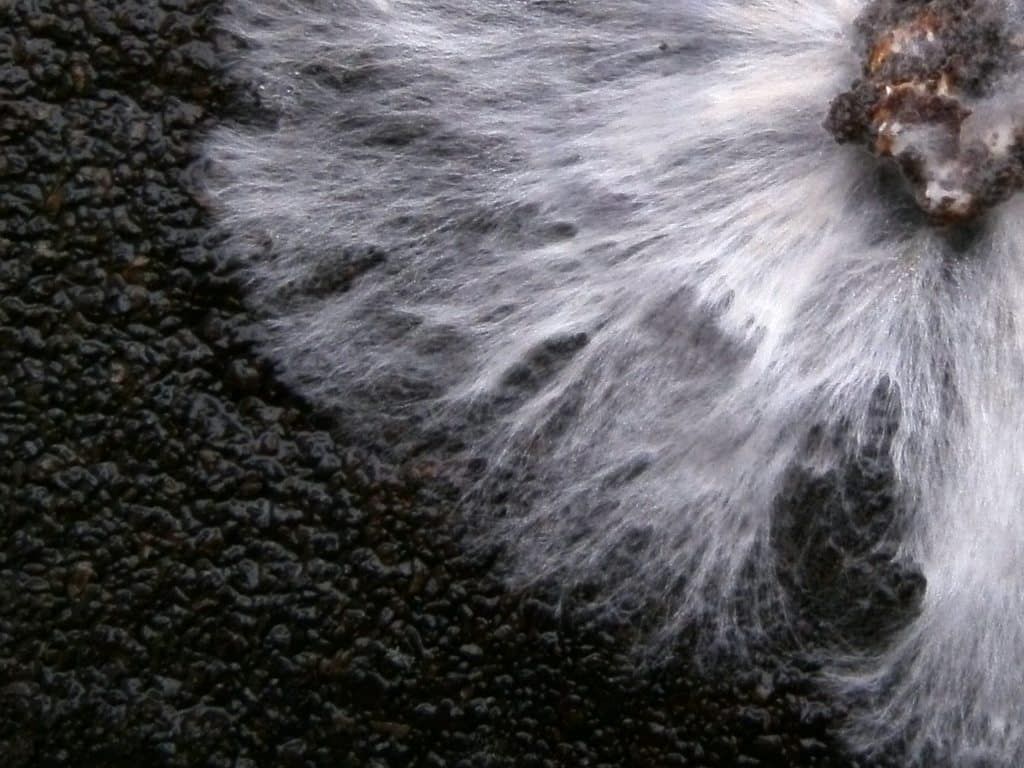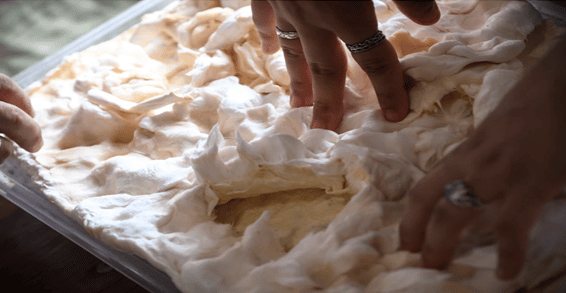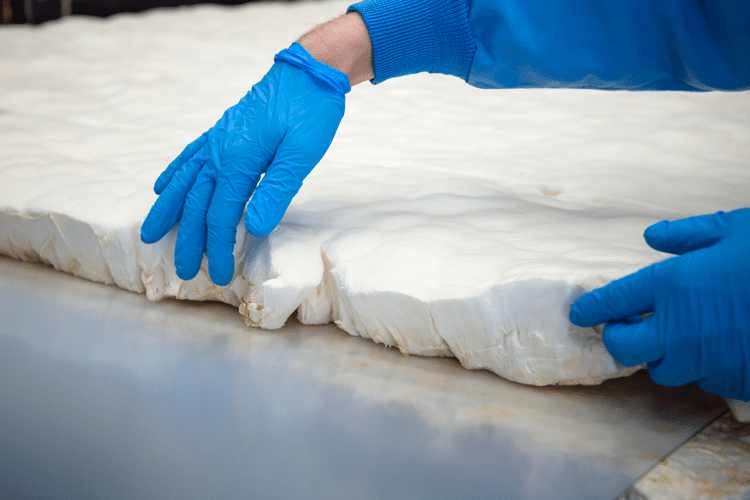Unpacking the packaging potential of mycelium, the mushroom ‘roots’ of many uses
By Kala Hunter | January 9, 2023
 Mycelium packaging (Credit: Ecovative)
Mycelium packaging (Credit: Ecovative)
As almost anyone who exchanged gifts over the holiday season can attest, buying, selling, and shipping all of that stuff requires an awful lot of plastic packaging. Perhaps you even have some of those cartons and cases and crinkly wrapping film still stashed around the house. Unfortunately, even if placed in the recycling bin, most of that single-use plastic will end up in a landfill.
Plastic waste is an ever-expanding problem, with approximately 380 million metric tons of new plastic added to the world every year. But what if there were an alternative material that could replace petroleum-based plastics? There is one possibility: mycelium, the white, root-like structure that grows beneath mushrooms.
Mycelium collects, stores, and sends information to other plants and trees via its branching networks under the forest floor. It performs a network function, not unlike the internet, “an underground information highway that speeds up interactions between plants,” says Zhao Qin, an assistant professor of civil and environmental engineering at Syracuse University.
“Mycelium consists of massive branching thread-like hyphae, which is stretched and split into substrates,” mycologist Ajay Singh writes in his paper, “Development of Sustainable Myco-material from Fungi.”

Mycelium has a physical structure that gives it strength and durability that can replace single-use plastic packaging. That means it could be part of the solution to some of the world’s most pressing problems.
The United States alone creates more than 35 million tons of plastic in a year, according to the Environmental Protection Agency. Only an estimated 5 percent to 6 percent of plastic waste in the United States is recycled; the rest is sent to landfills or incinerated.
Faced with a broken recycling system, some companies are making alternatives to petroleum-based plastics, creating products that are biodegradable or compostable.
Ecovative tapped into the mycelium market—or myco-material market—over a decade ago. Its core product is a replacement for single-use plastic such as Styrofoam, commonly used in shipping and packaging products.
“We’re growing full sheets of mushroom tissue, which end up being the mushroom packing,” says Ecovative Chief Marketing Officer Andy Bass. “The mycelium packaging can be thrown in your garden and then decompose in 45 days.”

Mycelium grows and thrives on agricultural waste by-product such as wood chips or decaying tree branches, shrinking agriculture waste streams.
“Ecovative grows its mushroom on corn stalk, hemp hurd, and wood chips,” Bass says.
Like fungi on the forest floor, mycelium likes dark and damp growing conditions. Humidity above 98 percent and temperatures between 24 and 25 degrees Celsius (75 to 77 degrees Fahrenheit) are ideal, says Qin.
When mycelium grows on waste, the structure grows out and down. The hemp hurd substrate and mycelium are mixed in molds to form large sheets.

In addition to tackling the compounding issues of plastic pollution and agriculture waste, Ecovative is also using mycelium to make meat alternatives. Mycelium-based meat is the latest myco-market the company hopes to capitalize on. “We just cut the ribbon on our largest farm to date,” says Bass.
In this case, Ecovative’s “Growth Chamber” mimics this vertical mushroom farm, growing “in an aerial style,” says Lacey Davidson, Ecovative marketing director. Ecovative declined to show videos of its growth chamber out of concerns for their intellectual property.
“It looks like a Dutch-style mushroom farm,” Davidson says. “We have reconfigured this model to grow mycelium instead of mushrooms. Instead of mushrooms popping up it looks more like one giant interconnected fluffy marshmallow growing a few inches above its feedstock.”
The 78,000-square-foot vertical farm in upstate New York can grow 3 million pounds of fungus-based meats per year. “We will be able to replace up to 1 million pounds of bacon,” says Bass. As of July, 2022, MyBacon is available in three health food stores, but the company has ambitious plans for expansion.
Substituting plant-based alternatives for meat and other animal products can dramatically reduce society’s carbon footprint, mitigate climate change, and improve human health, according to the latest findings from the United Nations’ Intergovernmental Panel on Climate Change.
Meanwhile, in the Netherlands, innovators are focusing their myco-attention on furniture and building insulation. “Mycelium-based foam and sandwich composites have been actively developed for construction structures,” says Qin.
While these ancillary household goods do not pose the same threat to climate and the environment as plastic packaging or animal agriculture, the toxins commonly found in common construction materials do pose a risk to human health and do not exist within a closed-loop system, eventually ending up in landfills.
“Even if EPS [expanded polystyrene, commonly used for insulation] is disposed of correctly, it can take thousands of years to degrade, evidently making it extremely difficult to properly contain,” writes Owen Robertson in a report, “Fungal Future,” for the Technical University of Denmark. “This has resulted in bioaccumulation of toxic chemicals in food webs across the planet.”
Ecovative’s licensed partner in the Netherlands, Grown Bio, is working on a bio-composite, mycelium-based insulation product to replace expanded polystyrene.
The last hurdle to market success is convincing buyers that mycelium-based products are just as durable and reliable as plastic. “Proving that these new bio-based materials have the same performance characteristics as the traditional materials is a challenge,” Bass says.
Together, we make the world safer.
The Bulletin elevates expert voices above the noise. But as an independent nonprofit organization, our operations depend on the support of readers like you. Help us continue to deliver quality journalism that holds leaders accountable. Your support of our work at any level is important. In return, we promise our coverage will be understandable, influential, vigilant, solution-oriented, and fair-minded. Together we can make a difference.
Keywords: plastics, pollution, waste
Topics: Climate Change














